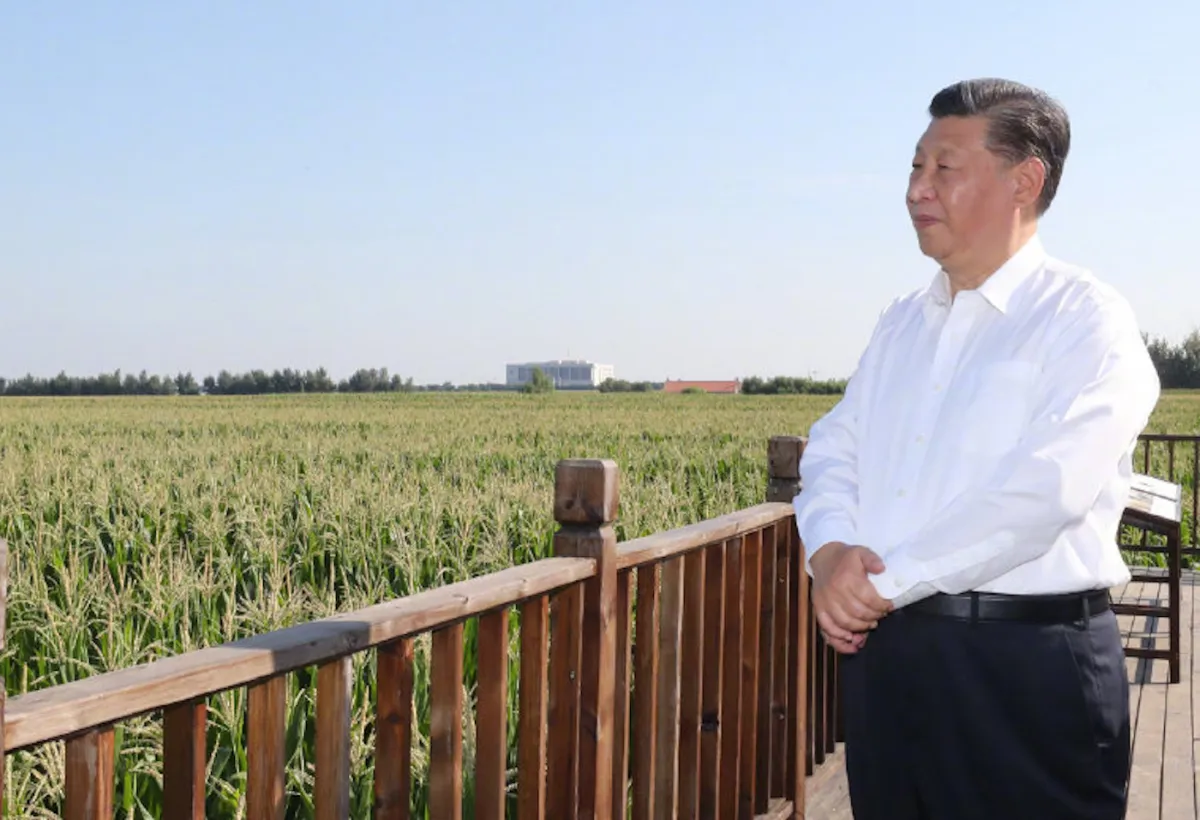Food self-sufficiency improbable; worries Chinese leaders
China’s efforts to achieve food sufficiency by implementing a slew of measures in recent years appear to losing steam. Recent trade figures show China is still importing food items on a large scale despite the high-level campaign to improve domestic farm production and cut reliance on food imports. This makes the ruling communist party worried thanks to the rebellions and political uprisings caused by food crises in the past.
China spent USD 234.11 billion on buying food commodities from other countries in 2023 as it imported 160 million tonnes of grain– an increase of 11.7 percent year-on-year.[1][2] This indicates that Chinese President Xi Jinping’s programme of making food security a national priority is fizzling out. China has remained a net importer of food commodities since 2004.
China managed to produce a ‘record’ 695 million tonnes in 2023. Yet there was a shortage of food.[3] China has to import heavy volumes of food items thanks to the responsibility of feeding over 1.43 billion people. China has around one-fifth of the world’s population but the arable land is below 10 percent and water resources are below six percent.
Amid the concerns about food shortage, China has decided to spend around USD 20 billion on stockpiling grains and edible oils in 2024, which is 8.1 percent higher compared to the previous year. “The rising reserve budget signals Beijing continues to be concerned about its supply of food and other key raw materials,” said Even Pay, agriculture analyst at Trivium China.
Agriculture production in China was hit in the past few years by adverse climate events that led to incessant and untimely rain, floods, prolonged droughts, and cyclones. “We’ve been hit by natural disasters really frequently since 2020, which exerted a quite big impact on the production of a series of staple foods including wheat and rice,” said an agribusiness analyst from central China.
The overall decline in farm productivity compelled Beijing to take corrective measures. This involved the adoption of technological solutions, cutting reliance on imported seeds, water management and supporting local farmers. However, China’s reliance on food imports does not seem to be cutting in the near future. Demand for high-quality foreign-produced food is growing in China. “Chinese consumers continue to pursue quality upgrades, and their demand for imported food is still rising,” said Zhou Yuan, account manager of a Chilian company named Vino Concha y Toro.
Analysts from the Brookings Institution and the Centre for Strategic and International Studies called China’s goal of achieving food self-sufficiency “improbable” even after adopting diversified inputs such as technology, and know-how, among others. “By necessity, if not by choice, China will have to continue to depend on imports to meet the food demands of its population,” they said.
The increasing reliance on imported food items has prompted concerns among Chinese officials as the disruptions in food supply could lead to domestic unrest, said Zongyuan Zoe Liu, a senior fellow at the New York-based Council on Foreign Relations. “Since 1949, Chinese Communist Party leaders and policymakers have consistently prioritized food security as an indispensable prerequisite to maintaining power,” she said.
Tim Benton, a professor at the University of Leeds, said the Russia-Ukraine war has shaken the core ability of the authoritarian Chinese government— to ensure food security. The food exports were disrupted after Russia invaded Ukraine, thus posing serious threats to food supplies to the Chinese. “This basic issue that they are frightened of food insecurity and they don’t want to rely on the market. A country like China is very nervous about being held to ransom,” he said.
The International Food Policy Research Institute (IFPRI) had warned China of the ill consequences of climate change, causing an 8 percent decline in the output of three main crops—rice, wheat and corn—by 2030 despite corrective measures. Water shortage and severe heatwaves are going to exacerbate China’s food security problems, said Hongzhou Zhang, a research fellow at Singapore-based S Rajaratnam School of International Studies. He said “Extreme climate events are expected to occur with increasing frequency in China, jeopardising its food security plan.”













